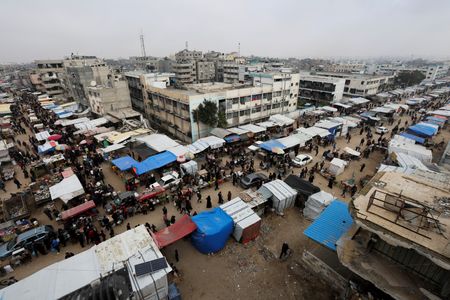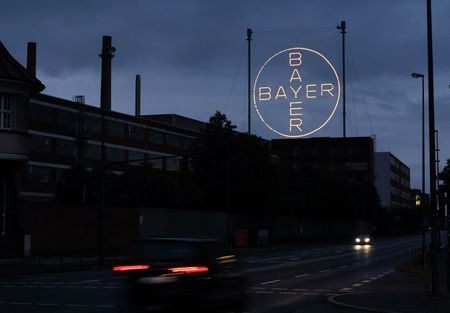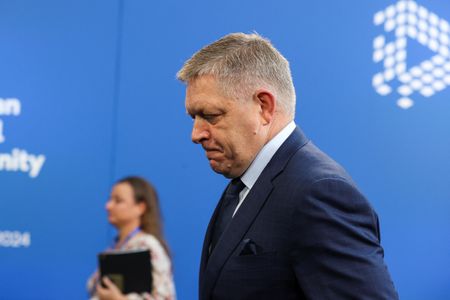By Andrew Mills, Nidal al-Mughrabi and Maayan Lubell
DOHA/CAIRO/JERUSALEM (Reuters) – Negotiators reached a deal on Wednesday for a ceasefire in the Gaza war between Israel and Hamas, an official briefed on the negotiations told Reuters, after 15 months of conflict that has killed tens of thousands of Palestinians and inflamed the Middle East.
The deal, not yet formally announced, outlines a six-week initial ceasefire phase and includes the gradual withdrawal of Israeli forces from Gaza and release of hostages held by Hamas in exchange for Palestinian detainees held by Israel, an official briefed on the negotiations told Reuters.
The agreement follows months of on-off negotiations brokered by Egyptian and Qatari mediators, with the backing of the United States, and came just ahead of the Jan. 20 inauguration of U.S. President-elect Donald Trump.
Hamas, Gaza’s dominant Palestinian militant group, told Reuters its delegation had handed mediators its approval for the ceasefire agreement and return of hostages.
A Palestinian official, who asked not to be named, told Reuters earlier Hamas had given verbal approval to the ceasefire and hostage return proposal under negotiation in Qatar and was waiting for more information to give final written approval.
Israeli Foreign Minister Gideon Saar said he was cutting a visit to Europe short and flying back to Israel overnight to take part in security cabinet and government votes on the deal – meaning the votes would likely be by or on Thursday.
Israeli troops invaded Gaza after Hamas-led gunmen broke through security barriers and burst into Israeli communities on Oct. 7, 2023, killing 1,200 soldiers and civilians and abducting more than 250 foreign and Israeli hostages.
Israel’s campaign in Gaza has killed more than 46,000 people, according to Gaza health ministry figures, and left the coastal enclave a wasteland of rubble with hundreds of thousands surviving the winter cold in tents and makeshift shelters.
As his inauguration approached, Trump repeated his demand that a deal be done swiftly, warning repeatedly that there would be “hell to pay” if the hostages were not released. His Middle East envoy Steve Witkoff worked with President Joe Biden’s team to push the deal over the line.
In Israel, the return of the hostages may ease some of the public anger against Prime Minister Benjamin Netanyahu and his right-wing government over the Oct. 7 security failure that led to the deadliest single day in the country’s history.
The conflict spread across the Middle East, with Iran-backed proxies in Lebanon, Iraq and Yemen attacking Israel in solidarity with the Palestinians. The deal comes after Israel killed the top leaders of Hamas and Lebanon’s Hezbollah in assassinations which gave it the upper hand.
(Reporting by Andrew Mills in Doha, Nidal Al Mughrabi in Cairo and Maayan Lubell in Jerusalem; additional reporting by Jana Choukeir in Dubai and Ramadan Abed in Gaza; writing by Michael Georgy; editing by Angus MacSwan, Frances Kerry and Mark Heinrich)















